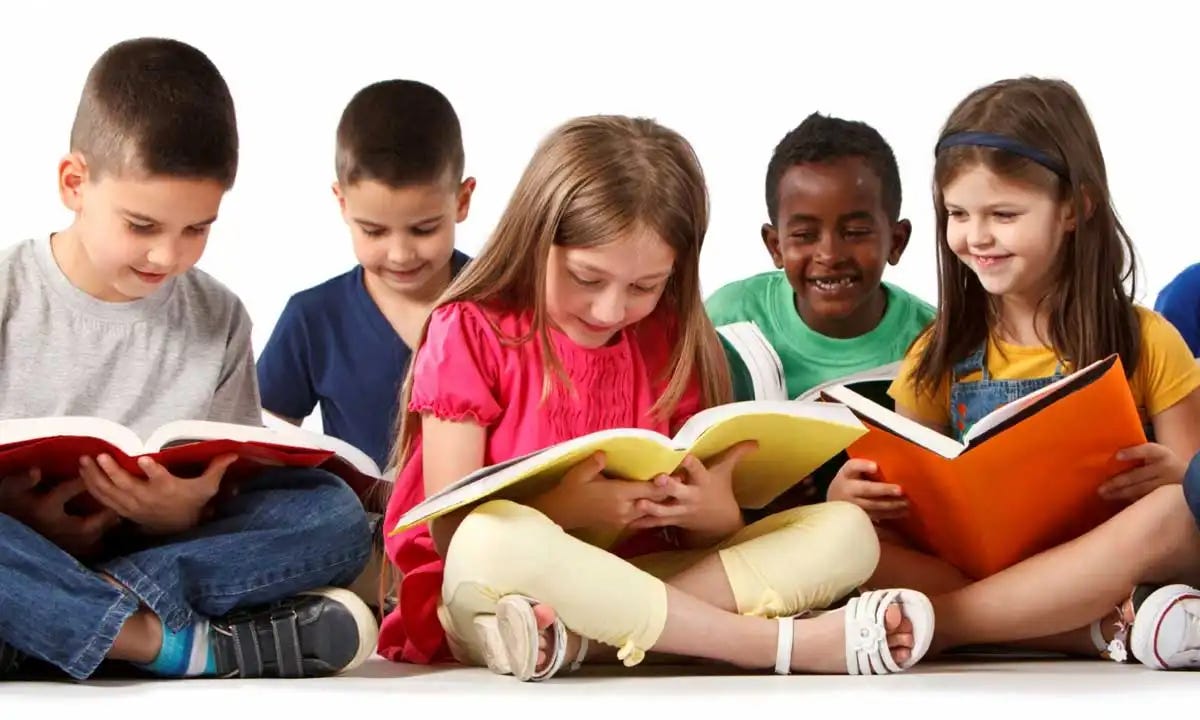Illiteracy is on the Increase
Exiting the freeway, I saw three large “No Right on Red” signs, indicating that crossing traffic couldn’t be seen. Two cars and a truck sped right through, fortunately, not hitting anyone or being struck. I notice that contrary to “right on red” laws, no one seems to stop anymore before making the risky right. That rule is clearly in the CA DMV handbook because it protects both pedestrians and legal left-turners. But people simply don’t read the signs, focused purely on their own needs or wants. Or can they read?
In a local park, we have a lot of wildlife—ducks, geese, turtles, otters and more. Signs everywhere warn you not to feed these animals. Junk food like bread makes them feel full (and make less effort to feed themselves), while providing no real nutrition. When I have asked parents to stop letting their little darlings drop this garbage on the ground, the “Kayla” (liberal versions of Karens) always say, “It’s just something my kid likes to do. It doesn’t harm anyone). The same people feel safe picking a few flowers in the rose garden. If even half the visitors did the same, all the wildlife and plants would be gone. Can’t you read?
Here’s some data, in case you think my sample size is too small.
“The Nation:
In a study of literacy among 20 ‘high income’ countries; US ranked 12th.
Illiteracy has become such a serious problem in our country that 44 million adults are now unable to read a simple story to their children
50% of adults cannot read a book written at an eighth-grade level.
45 million are functionally illiterate and read below a 5th grade level.
44% of the American adults do not read a book in a year.
6 out of 10 households do not buy a single book in a year
The Economy:
3 out of 4 people on welfare can’t read.
20% of Americans read below the level needed to earn a living wage.
50% of the unemployed between the ages of 16 and 21 cannot read well enough to be considered functionally literate.
Between 46 and 51% of American adults have an income well below the poverty level because of their inability to read.
Illiteracy costs American taxpayers an estimated $20 billion each year.
School dropouts cost our nation $240 billion in social service expenditures and lost tax revenues.
Impact on Society:
3 out of 5 people in American prisons can’t read.
To determine how many prison beds will be needed in future years, some states actually base part of their projection on how well current elementary students are performing on reading tests.
85% of juvenile offenders have problems reading.
Approximately 50% of Americans read so poorly that they are unable to perform simple tasks such as reading prescription drug labels” – Source--National Institute for Literacy, National Center for Adult Literacy, The Literacy Company, U.S. Census Bureau
The Impact of Education
Clearly our educational system isn’t doing its job. Reading, writing and basic arithmetic are requirements for any kind of success in life. Once these are assured for all children, then, you can look at other educational choices. Instead, schools are focused on early sex education, critical race theory, climate change and facility with using technology (which doesn’t translate into useable IT skills that could help them move onto a job). Perhaps if the federal and state governments got out of the education business, local schools could make better use of the dollars and ensure that every child gets a decent start in life. People wonder why kids have trouble at jobs and can’t seem to manage a budget, pay bills or figure out their taxes. If you can’t read well and basic math is hard, what would you expect?
Nothing Matters More
I was lucky. My folks knew that reading was critical to life success and started me off early. They might tell me a little about a story and then tell me, “Go read the book.” I got hooked. They understood that the books schools push often are so boring or pedantic that kids who have trouble reading aren’t motivated to get through them. J. K. Rowling did a service by publishing the Harry Potter series. I suspect a large number of kids improved their reading simply because the books were so irresistible. But the quick transition from book to movie means that too many kids wait for the film instead of reading the book.
One of my most valuable volunteer experiences was Project READ where we spent ½ hour a week helping kids who couldn’t read well. Interesting point—these kids volunteered to give up some lunch time for this program, and even though we weren’t trained in teaching reading, most kids were reading at grade level in one semester. I urge everyone to share the joy of reading with everyone they meet and to offer help and money to non-profit (not government) programs designed to help with literacy issues.
Remember: People who can’t read are still voting, which leads to voting fraud when unscrupulous types “help” them with their ballots. We all benefit from a literate, employable population. What can you do to make a difference? Start by reading yourself and sharing it with your children and grandchildren
.





A lot of the kids I got to know thru Project Read had parents who either didn't read (or didn't know how). They didn't value it, so the kids didn't. Amazing how giving a kid a book that's their very own can influence them.
Parents are really key to make this happen. However, as you noted, the school system has abdicated their responsibility for basic skills in lieu of a social agenda. I was never a fan of a voucher system until I finally realized what was going on in public schools. It’s tragic.